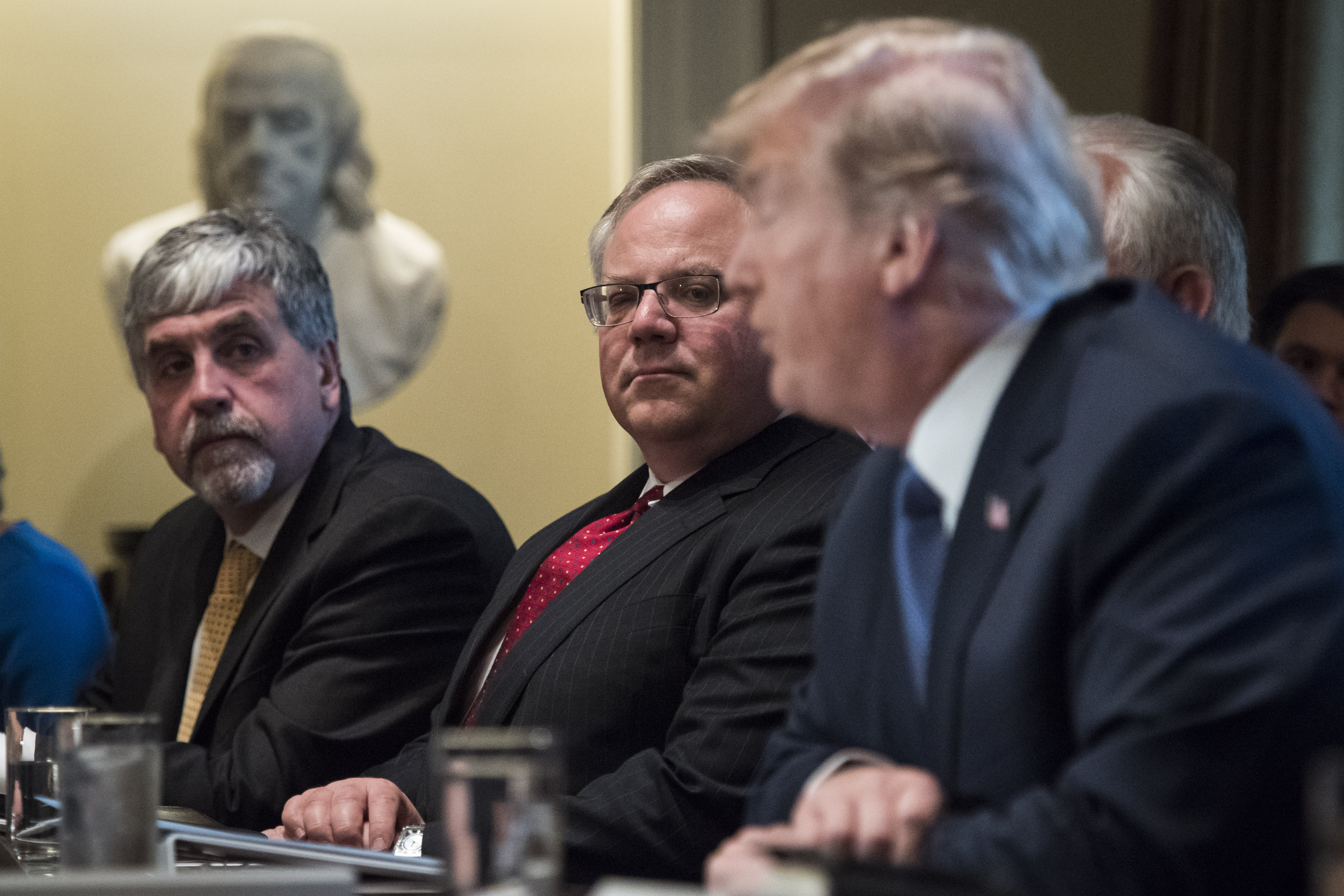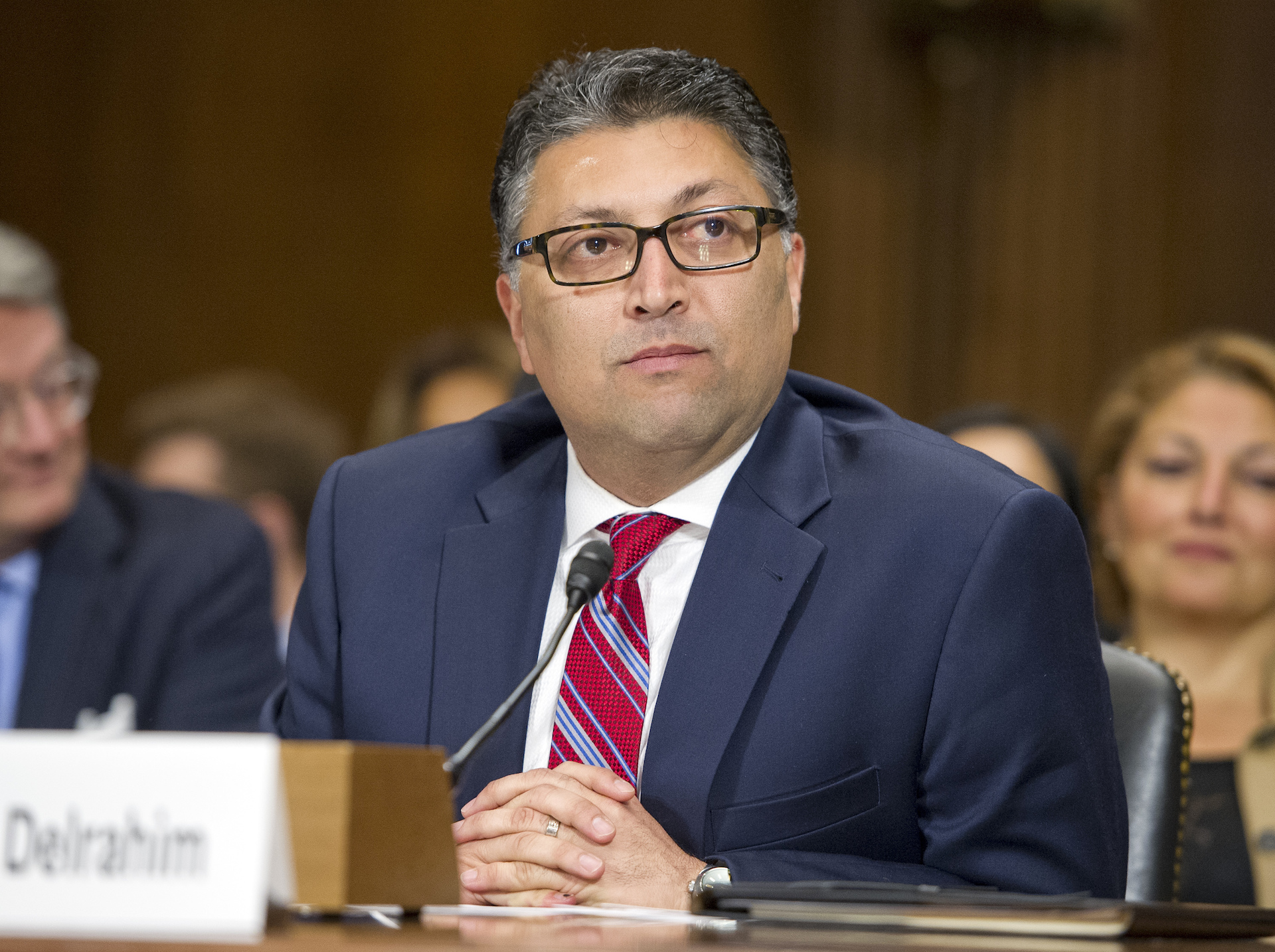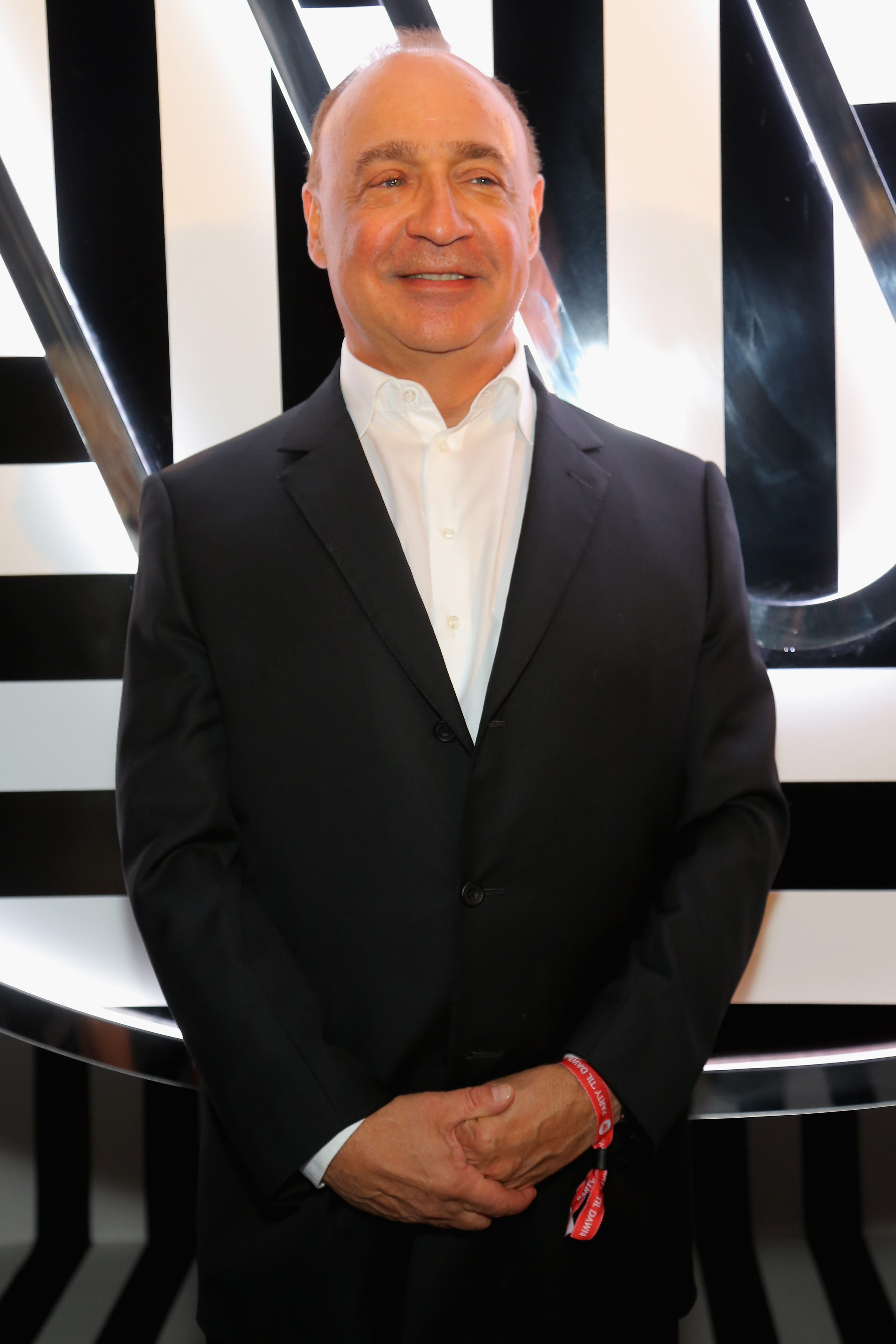Two senior Trump administration officials were once registered as lobbyists for an investment company controlled by a Soviet-born industrialist who made billions doing business with newly sanctioned Russian oligarchs.
Makan Delrahim is now the assistant attorney general for the Antitrust Division in the Department of Justice, after rising from his original appointment as deputy White House counsel and deputy assistant to the president. David Bernhardt is the No. 2 official in Trump’s Department of the Interior.
Videos by VICE
Both men registered as lobbyists in 2011 and 2012 for Access Industries, a holding company controlled by billionaire Leonard Blavatnik, according to public filings reviewed by VICE News. And though they are far from the only D.C. lobbyists to get plum jobs in the Trump administration, the connection to Blavatnik, long in business with billionaire associates of Russian President Vladimir Putin, reveals yet another link between Russia and senior Trump officials.
Blavatnik, 60, is a naturalized dual U.S.-U.K. citizen who owns Warner Music Group. He’s also a longtime donor to both political parties. He gave at least $314,800 in the 2014 midterms, with a slim majority going to the Democratic side. But Blavatnik dramatically ramped up his donations to Republican causes prior to the 2016 U.S. election, according to a review of public filings carried out by Ruth May, a professor at the University of Dallas.
Read: Trump just hit Russian oligarchs with the stiffest sanctions yet
The U.K.-based billionaire and his companies gave a minimum of $5.55 million to Republican groups during the 2016 election season, according to May. “Blavatnik’s pattern of political donations changed abruptly starting in the 2015-2016 election cycle,” May told VICE News. “In prior cycles, his campaign donations totaled approximately $300,000, and they were scattered pretty evenly across 30 to 40 candidates in both parties.”
Although he didn’t donate directly to Trump’s campaign, after Trump won, Access Industries gave another $1 million to the Presidential Inaugural Committee. And according to the Wall Street Journal, Blavatnik gave $12,700 in April 2017 to a Republican National Committee fund that was used to help pay for the team of private attorneys representing Trump in the probe of Russian interference in the 2016 election. He’d given the RNC legal fund $100,000 in 2016, the Journal said.

Blavatnik built his fortune in Russia before branding himself as an American-British philanthropist. As an American owner of a U.S.-based company, Blavatnik can legally donate to U.S. political causes. Foreign contributions, however, are forbidden by law.
Professor May, who’s been tracking Blavatnik’s political donations since last year, says the billionaire’s donations and business connections to Russia deserve more scrutiny.
“Blavatnik’s ties to members of Putin’s closest inner circle should force us to examine Russia’s ability to influence our elections and our democratic institutions, well beyond Trump and Facebook,” May said. “There are holes in our country’s firewall and they aren’t on the Internet.”
“This guy needs to stay away from the entire Russia thing.”
Neither Delharim nor Bernhardt, who registered to lobby for Blavatnik and Access Industries in the past, currently has a job with direct oversight of issues related to the Russian economy or the Russia probe. But Delharim might have been involved when he was in the White House counsel’s office, a position he left in September for the DOJ.
Read: Paul Manafort, a mysterious Russian jet, and a secret meeting
Richard Painter, former White House ethics lawyer under President George W. Bush, said that in his view, Delrahim would have needed to recuse himself from any work at the White House involving the investigation into Russia’s role in the 2016 election due to his previous work for Access Industries.
“I think that if I were in the White House Counsel’s Office, I’d say, ‘This guy needs to stay away from the entire Russia thing,’” Painter told VICE News.
The Department of Justice declined to comment on the record to VICE News for this story, and didn’t respond when asked whether Delrahim was ever involved in the White House Counsel’s Russia investigation. The White House didn’t return a request for comment.
White House counsel lawyers typically spend much of their time responding to investigations, Painter said. While Delrahim wouldn’t have known for certain whether Mueller was looking into Access Industries’ political donations, the possibility should have been enough for Delrahim to recuse himself from working on the Russia probe, Painter said.
“Because while he doesn’t know that a former client is a party to [the investigation], it’s just highly likely that there would be some inquiries made about this former client and why he put $6 million into the U.S. election,” Painter said. “I can’t believe that Bob Mueller wouldn’t be checking that box.”
A spokesman for Blavatnik declined to comment for this story and would not answer whether the billionaire has been in communication with Mueller’s investigators.

For over a decade, Blavatnik’s New York-based Access Industries has owned a big stake in UC Rusal, along with two of Russia’s most recognizable oligarchs: Oleg Deripaska and Viktor Vekselberg, a billionaire whom The New York Times has called “close to the Kremlin.” That relationship got complicated last week, when Rusal, Vekselberg and Deripaska were slapped with sanctions aimed at punishing Putin and his closest allies for Russia’s aggressive foreign policy, including attempts to subvert Western democracies. As a result, U.S. citizens and companies must not engage in business with the blacklisted names.
The move may force Access Industries to unwind its position in Rusal by May 6, according to Erich Ferrari, a Washington-based sanctions lawyer. Access Industries declined to comment.
A person close to Delrahim said his lobbying work for Access Industries was limited to promoting the interests of Warner Music Group, which Blavatnik purchased in 2011 for $3.3 billion.
The person said Delrahim was tasked by Access Industries with attempting to block the merger between Universal Music Group and EMI Music — an effort that failed in September 2012, when Universal received regulatory clearance in Europe and the U.S. for its $1.9 billion takeover.
“He [Delrahim] has no involvement with, or any awareness of, any of the other subsidiaries that Access Industries has owned, which would include Rusal,” the person told VICE News.
As of the fourth quarter of 2017, the lobbying firm that Delrahim and Bernhardt worked for was still on Access Industries’ payroll, according to public records. Bernhardt told the Senate during his confirmation hearing that despite filing the paperwork, he never actually did any lobbying for Blavatnik’s firm.

Len Blavatnik attends the Brits Awards 2018 After Party at Freemasons Hall on February 21, 2018 in London, England. (Photo by David M. Benett/Dave Benett/Getty Images for Warner Music Group)
Blavatnik sat on Rusal’s board for years until resigning on November 10, 2016, two days after Donald Trump won the election. In a statement, Rusal said Blavatnik was stepping down “due to other business commitments.”
Delrahim and Bernhardt are former officials in the George W. Bush administration who worked as lobbyists after leaving office. When Trump won, both joined the transition team. They’re far from unique: On the campaign trail, Trump famously pledged to “drain the swamp,” but his administration has hired at least 187 former lobbyists, according to records compiled by Propublica. According to a review by Politico, Obama had hired slightly more than 70 former lobbyists by midway through his second term. Trump granted five times more lobbying ethics waivers in his first four months than Obama did, according to Vox.
Delrahim’s zig-zag between Republican administrations and a lobbying firm illustrates the convoluted relationship between the government in D.C. and its lobbying industry, said Sheila Krumholz, executive director of the Center for Responsive Politics, a nonprofit group that tracks the impact of money and lobbying on elections and public policy.
“I think Delrahim’s role as lobbyist for Access Industries, and his shift to government service and oversight, offer an important example of why the lobbying industry and the revolving door specifically are so problematic, and need special attention,” Krumholz said.
Delrahim’s lobbying disclosure forms, however, suggest he was also at least registered to lobby for other issues as well, including the “taxation of the repatriation of foreign income.”
Bernhardt’s nomination to the Department of the Interior stirred controversy at the time, largely due to his background lobbying for energy and mining firms, work that earned him $1.1 million the year before his nomination. His previous connection with Blavatnik’s Access Industries, specifically, drew little scrutiny from the press, however.
Bernhardt did describe his lobbying work in a statement to Congress ahead of his nomination hearing in May 2017 that explicitly mentioned Access Industries prior to his confirmation, the Department of the Interior said.
“Mr. Bernhardt never lobbied for Access Industries and he addressed this issue in his paperwork that was submitted to the Senate,” Heather Swift, Press Secretary for the Department of the Interior, wrote in an email to VICE News.
Cover image: U.S. President Donald Trump arrives to speak about tax cuts during an event with American workers in the Rose Garden of the White House in Washington, DC, April 12, 2018. (Photo: Saul Loeb/AFP/Getty Images)




